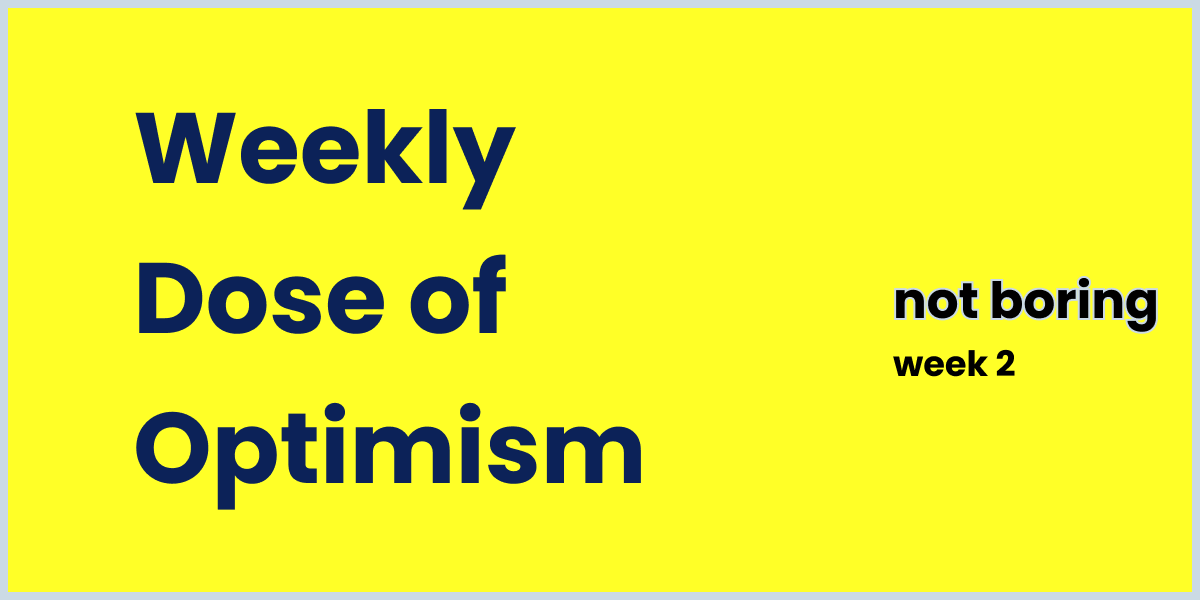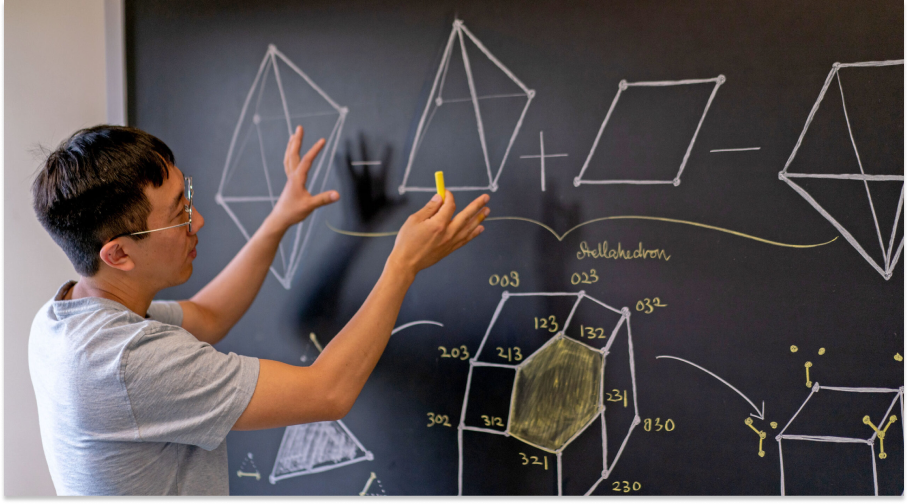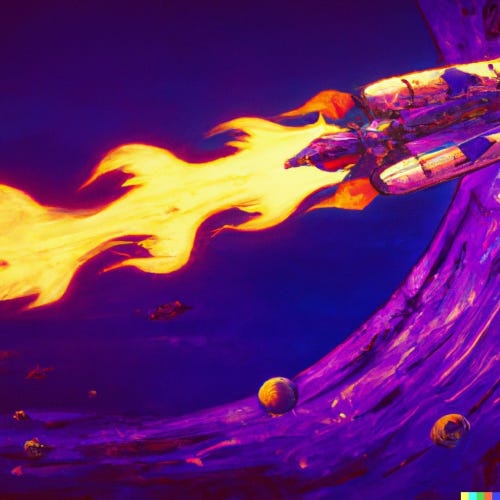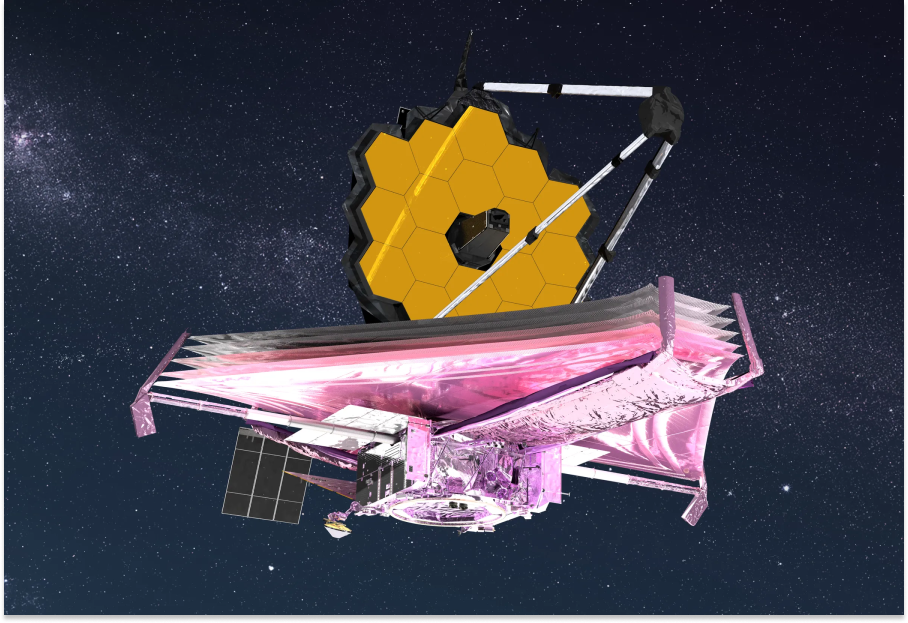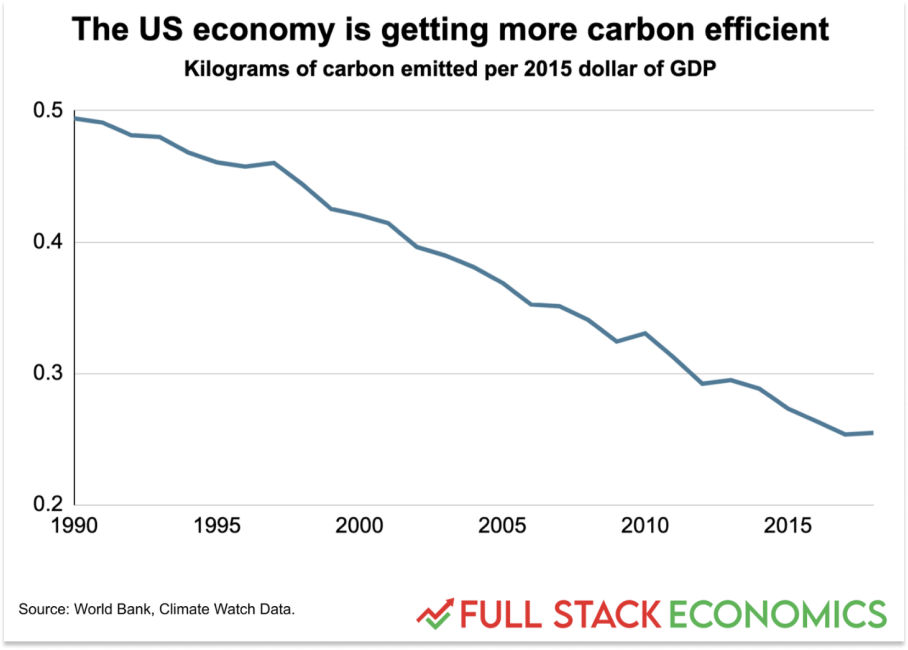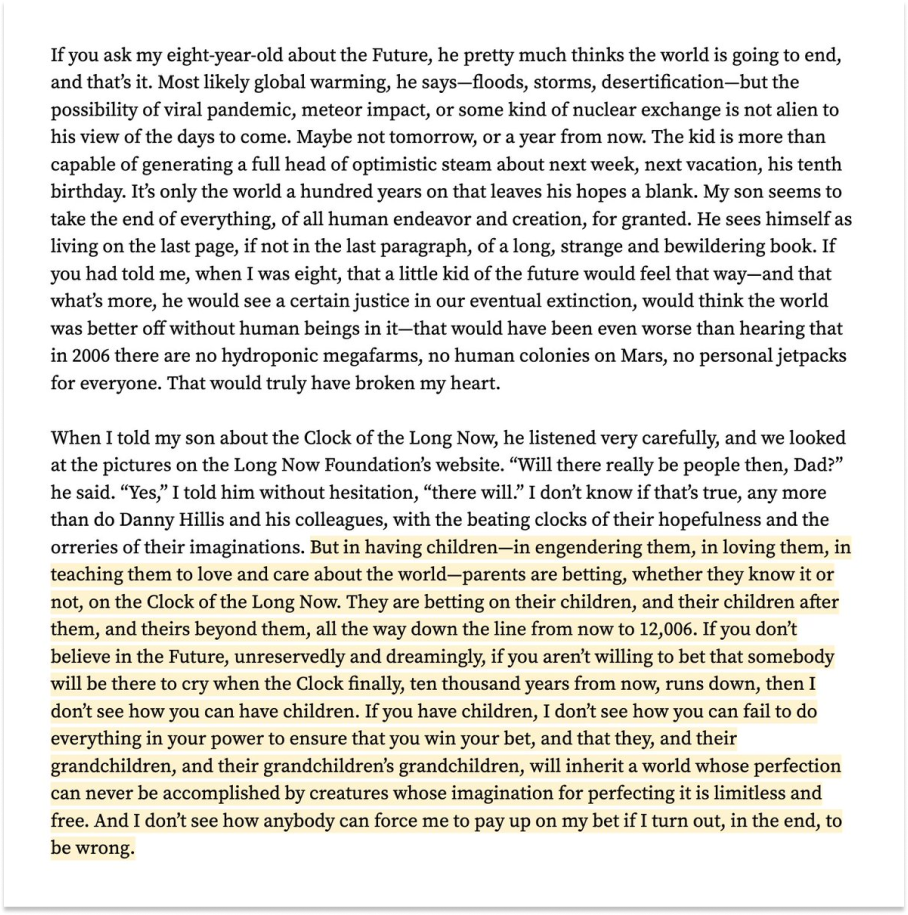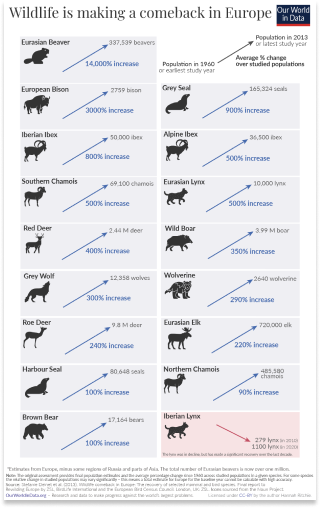Not Boring by Packy McCormick - Weekly Dose of Optimism
Come for the Optimism, stay for the in-depth analyses of tech companies and trends: Hi friends 👋, Happy Friday! We’re launching a new weekly newsletter today: Weekly Dose of Optimism. Not Boring’s mission is to make the world more optimistic. A few weeks ago, I wrote Optimism to make the case that there’s a lot to be optimistic about, and that it’s important to be optimistic in order to progress. At the end of that essay, I asked whether you would want to receive a weekly roundup of optimistic stories, and received a lot of positive responses. Last Friday, I tweeted the first Weekly Dose:  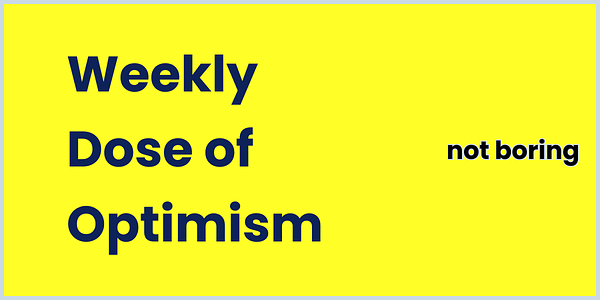 I said if the tweet got over 100 likes, I’d turn this into a newsletter. Here we are. The idea here is simple: ten articles, essays, companies, ideas, podcasts, or videos I came across that week that made me more optimistic about the future. These aren’t likely to be feel good or human interest stories, although a few might slip in. The point isn’t, “Things are brutal, here’s a cat video to cheer you up.” This isn’t about market or financial optimism, either. We won’t share articles that explain why the price of some stock or token is going to go up next week. We’re going for a combination of the JFK “We choose to go to the Moon, not because it is easy but because it is hard” optimism and the David Deutsch Principle of Optimism: “All evils are caused by insufficient knowledge.” We’re just going to share stories of humans doing cool shit, pushing frontiers, and learning new things. Humans, for the most part, rock. I want this to be collaborative. When you come across examples, drop them here. I’ll be sure to give you credit for sharing them. And please give us feedback. Let’s get to it. Week 2: July 8, 2022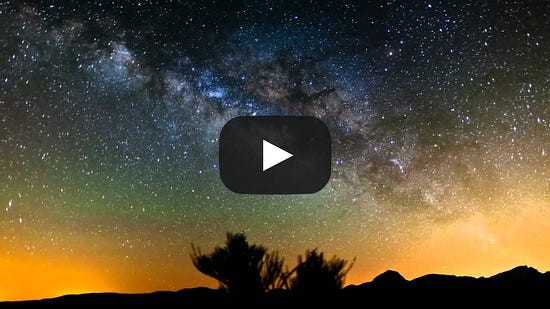
h/t to Rahul for sharing on Twitter (1): He Dropped Out to Become a Poet. Now He’s Won a Fields Medal. By: Jordana Cepelwicz in Quanta Magazine
Princeton’s June Huh is one of four mathematicians who received the most recent Fields Medal, “which are given out once every four years to some of the most accomplished mathematicians under the age of 40,” including Maryna Viazovska, the second female recipient of the award in its 82 year history. Huh was a self-described mediocre math student in high school, dropped out of college to pursue poetry, and didn’t start studying math formally until he was 23. Beautifully, it seems that Huh’s experience with poetry, or the same thing in his brain that drew him to it, landed him among the world’s top mathematicians by seeing problems differently than they do. More on all the medalists in The New York Times. (2) Why go to space? By: Eli Dourado (our first two-time Weekly Doser, two weeks in!)
Dourado highlights the benefits of going to space in four areas:
For a deeper dive, I highly recommend Robert Zubrin’s The Case for Space. (3) Webb Telescope Will Look for Signs of Life Way Out There By: Carl Zimmer, The New York Times
Speaking of space, the Webb Telescope will begin taking pictures as it orbits around the sun after 25 years’ of work. Webb will be so cold (below 40 Kelvin) that it will be able to see the early universe more than 13.5 billion years ago. Astronomers plan to examine the atmospheres around planets orbiting other stars, something previous telescopes weren’t powerful enough to do. They’re looking for signs of atmospheres that might be able to support life. While Webb is a step closer to finding extraterrestrial life, if it’s out there, it’s also a celebration of the ingenuity of humans on this planet. “Webb is not just the product of a group of people. It’s not the product of some smart astronomers—Webb is truly the product of our entire world’s capability,” Keith Parrish, a leader on the Webb team at NASA’s Goddard Space Flight Center in Maryland, told IEEE. “Taken as a whole, Webb is truly the result of our entire know-how of how to build complex machines.” (4) Ten years on from the Higgs boson, what is next for physics? From: The Economist
On Tuesday, CERN turned on the Large Hadron Collider (LHC) for the first time in 3.5 years after taking it offline for upgrades. As this article points out, discoveries from the last run are shaking long-held assumptions in physics and refining how we understand the world. They also discovered three subatomic particles that are consistent with the Standard Model In this run, at higher energies than ever before, scientists are looking to better understand mysterious phenomena like dark matter. (5) Demis Hassabis: DeepMind — Lex Fridman Podcast
DeepMind is an Alphabet-owned AI lab “committed to solving intelligence, to advance science and benefit humanity.” DeepMind’s AlphaGo beat the world’s best Go players, something AI researchers thought might never be possible given the game’s complexity, and its AlphaFold solved protein folding, a decades-old challenge in biology. DeepMind open-sourced the model in order to let researchers and drug developers build on top of it. Now, it’s turning its attention to problems like recreating a full cell and solving nuclear fusion.
Even before (and even if we never get to) AGI, AI’s impact is going to be more profound and world-changing than most people anticipate (or even think about). (6): 24 charts that show we’re (mostly) living better than our parents By: Timothy B. Lee at Full Stack Economics
Lee presents 24 charts that show that, despite the headlines, we’re better off than our parents in a lot of ways. We’re eating more fruits and veggies, cars are cheaper, more powerful, and safer, policy has helped boost incomes of the lowest-income people, we have more household appliances, rents are actually growing less slowly than income in major cities, we’re less vulnerable to heart disease, and we’re able to produce more GDP with less carbon. (7): The Future Will Have to Wait By: Michael Chabon, Submitted by: Ben Springwater
This is an oldie (2006) but a goodie that Ben Springwater shared with me this week.
Europeans are hunting wild mammals less and using less land for agriculture, returning the land to its original inhabitants. (9) The Network State and How to Start a New Country By: Balaji Srinivasan & Tim Ferriss
I wasn’t sure whether or not to include this one in the “optimism” category — certainly, the near future that Balaji describes isn’t rainbows and butterflies. But I went with it, because Balaji paints a compelling picture of new forms of governance and human organization born from the internet. If optimism is the belief that we will continue to accumulate knowledge to solve problems, more experiments on and evolution in the ways we organize fits the bill.
(10): Surely You’re Joking, Mr. Feynman! By: Richard Feynman
A couple of years ago, my friend Lauralynn recommended physicist Richard Feynman’s autobiography to me. I think she said it was her favorite book. I just got around to reading it, and even though I’m not quite halfway done yet, I feel good recommending it to you. Feynman’s curiosity and mischievousness jump off the page, and his approach to figuring things out make me want to understand things more deeply. As he wrote to end a chapter, “I don’t know what’s the matter with people: they don’t learn by understanding; they learn by some other way—by rote, or something. Their knowledge is so fragile!” Pulling this whole thing together, Feynman wrote:
… which sounds an awful lot like June Huh. Not everything is great. The war in Ukraine rages on. The political situation in the UK is a mess. Layoffs are still widespread. As one Twitter user pointed out, the US “is told what laws are by an unelected council of wizards that try to guess what the ghost of thomas jefferson really meant.” And tragically, former Japanese Prime Minister Shinzo Abe was assassinated this morning. Things aren’t perfect, and there’s a lot of work to be done. I hope this newsletter makes you a little more optimistic heading into the weekend. It’s very much a work-in-progress — please send feedback (including whether or not you think we should keep sending it!), and help us out by submitting the things you come across that make you most optimistic here. Have a great weekend! Packy If you liked this post from Not Boring by Packy McCormick, why not share it? |
Older messages
Making Moonshots
Thursday, July 7, 2022
Rahul Rana joins Not Boring to discuss the history and future of deeptech
The Founder's Letter: Jordan Singer, Diagram
Thursday, June 30, 2022
On Design
Web3 Use Cases: The Future
Monday, June 27, 2022
Will web3 justify the hype?
Web3 Use Cases: Today
Thursday, June 23, 2022
Jumping Back Into the Web3 Debate
Ginkgo Bioworks: The Organism Company
Monday, June 13, 2022
Elliot Hershberg joins Not Boring and introduces us to synthetic biology
You Might Also Like
🔮 $320B investments by Meta, Amazon, & Google!
Friday, February 14, 2025
🧠 AI is exploding already!
✍🏼 Why founders are using Playbookz
Friday, February 14, 2025
Busy founders are using Playbookz build ultra profitable personal brands
Is AI going to help or hurt your SEO?
Friday, February 14, 2025
Everyone is talking about how AI is changing SEO, but what you should be asking is how you can change your SEO game with AI. Join me and my team on Tuesday, February 18, for a live webinar where we
Our marketing playbook revealed
Friday, February 14, 2025
Today's Guide to the Marketing Jungle from Social Media Examiner... Presented by social-media-marketing-world-logo It's National Cribbage Day, Reader... Don't get skunked! In today's
Connect one-on-one with programmatic marketing leaders
Friday, February 14, 2025
Enhanced networking at Digiday events
Outsmart Your SaaS Competitors with These SEO Strategies 🚀
Friday, February 14, 2025
SEO Tip #76
Temu and Shein's Dominance Is Over [Roundup]
Friday, February 14, 2025
Hey Reader, Is the removal of the de minimis threshold a win for e-commerce sellers? With Chinese marketplaces like Shein and Temu taking advantage of this threshold, does the removal mean consumers
"Agencies are dying."
Friday, February 14, 2025
What this means for your agency and how to navigate the shift ͏ ͏ ͏ ͏ ͏ ͏ ͏ ͏ ͏ ͏ ͏ ͏ ͏ ͏ ͏ ͏ ͏ ͏ ͏ ͏ ͏ ͏ ͏ ͏ ͏ ͏ ͏ ͏ ͏ ͏ ͏ ͏ ͏ ͏ ͏ ͏ ͏ ͏ ͏ ͏ ͏ ͏ ͏ ͏ ͏ ͏
Is GEO replacing SEO?
Friday, February 14, 2025
Generative Engine Optimization (GEO) is here, and Search Engine Optimization (SEO) is under threat. But what is GEO? What does it involve? And what is in store for businesses that rely on SEO to drive
🌁#87: Why DeepResearch Should Be Your New Hire
Friday, February 14, 2025
– this new agent from OpenAI is mind blowing and – I can't believe I say that – worth $200/month
